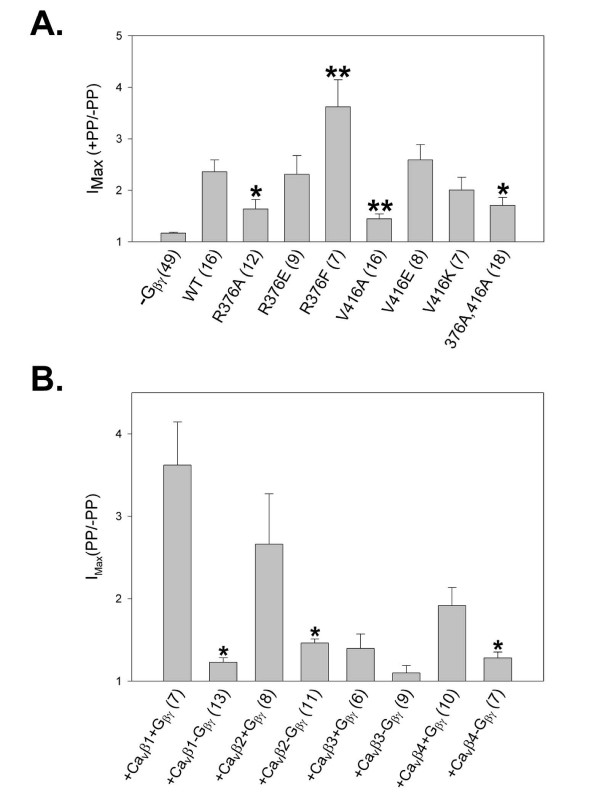Figure 2.
A: Histogram summarizing the results of PPF experiments performed with Cav2.2 isoforms carrying mutations of α1B residues Arg376 and Val416. Columns show mean PPF values with SE bars for each condition. Human Gβ1γ2 was co-expressed in tsA-201 cells with the Cav2.2 isoforms for each condition presented except for the negative control ("-Gβ1γ2"). Respective mutations in the Cav2.2 amino acid sequence are indicated beneath the corresponding columns (see METHODS for full description of the mutations used). Of the various conditions examined only the mutations R376A, R376F, V416A, and the double mutation R376A, V416A resulted in a significant loss of Gβγ-mediated channel inhibition, as measured by the degree of pre-pulse relief following a depolarizing pre-pulse, when compared to WT control (*p < 0.05, t-test, **p < 0.05 one-way ANOVA, Dunnett's method, or Kruskal-Wallis one-way ANOVA on ranks). Numbers in parentheses indicate numbers of cells tested for the respective condition. B: Histogram summarizing the results of PPF experiments using tsA-201 cells co-transfected to express α1B mutant R376F with Cavβ isoforms β1B, β2, β3, and β4, with or without heterologous human Gβ1γ2 as indicated by labels beneath columns. Columns show mean PPF values with SE bars for each condition (see METHODS for full description of the mutations used). Of the conditions examined, coexpression of Cavβ1B and Cavβ2a, and Cavβ4 resulted in statistically significant differences in mean current density for R376F channels expressed with and without heterologous Gβγ (*p < 0.05 using t-test, Mann-Whitney rank sum test, and t-test, respectively).

